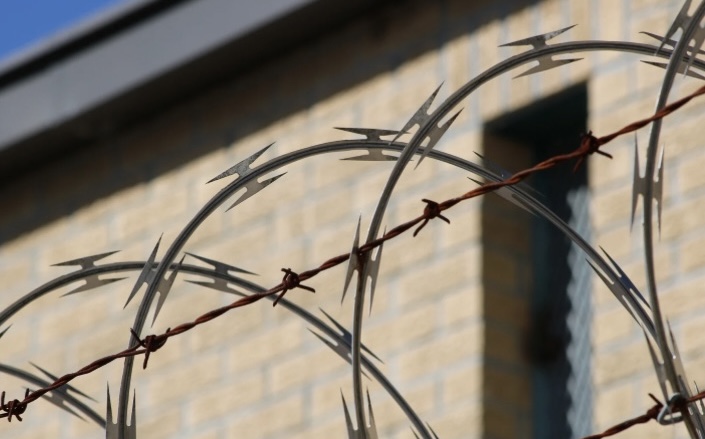Hispanics incarcerated in U.S. federal and state prisons and local jails, represent slightly over 15% of the total inmate population, reports The Sentencing Project.
America and countries abroad have mastered the art of taming wild animals—training the most vicious killers, honing killer instincts, and even domesticating animals born for the hunt. Wild animals in this country receive extensive resources to facilitate their reintegration into society.
Americans spent more than $150 billion on their pets in 2024, with an estimated spending projection of $200 million by 2030. Millions of dollars are poured into shelters, rehabilitation programs, and veterinary care, as shown by industry statistics on animal welfare spending. Television ads and commercials plead for their adoption. Stray animal hotlines operate 24/7, ensuring immediate rescue services. Pet parks, relief stations in airports, and pageant shows showcase animals as celebrities.
Yet, when it comes to human beings trapped in the cages of the prison system—many of whom have spent decades behind bars with little to no education, job training, or rehabilitation—society’s response is vastly different.
Probation, parole, clemency, and commutation remain elusive for countless incarcerated individuals. The Department of Justice is seeking the death penalty for Luigi Mangione and “wherever possible,” signaling the persistence of extreme punishment over rehabilitation.
A new study from the MacArthur Foundation shows that the U.S. incarcerates more people than any other nation on earth; about 1.9 million people are behind bars in America today. That includes over 1 million in state prisons, more than 600,000 in local jails, and tens of thousands more in federal prisons, youth facilities, and immigration detention centers. Incarceration disproportionately affects communities of color, with Black Americans incarcerated at five times the rate of white Americans.
The U.S. leads the world not only in incarceration but in punishment. According to the World Population Review, recidivism rates remain troublingly high in many states. For example, Mississippi’s three-year recidivism rate is at 36.8% while its five-year recidivism rate is twice as much at 77%. Delaware has a recidivism rate of over 64%, while other states like Alaska and California hover around 60%. This points to a system that punishes but fails to prepare individuals for successful reentry.
Canine units have specialized vehicles, dedicated badges, and even media appearances to highlight their achievements. Pets are given names to match their personalities and receive treats made with the finest ingredients to encourage good behavior.
Yet, within the confines of prison walls, there are no treats—only threats of write-ups and solitary confinement. Instead of incentivizing positive behavior, the system remains punitive, ensuring that many incarcerated individuals are released into society more damaged than when they entered.
Even when animals turn on their trainers—sometimes attacking or even killing them—this has not deterred the deep investment in their rehabilitation. In Connecticut, a pet chimpanzee nearly killed a woman despite years of training. In Montana, a K-9 attacked a resident. In Russia, a circus bear mauled its trainer mid-performance.
Despite these tragedies, society continues to pour resources into animal care, rehabilitation, and reintegration, believing in their capacity to change and be forgiven.
Meanwhile, when a person makes a mistake—often in circumstances shaped by systemic injustices—society is quick to label them irredeemable. Many who have served decades—often under outdated sentencing laws—remain locked away with no hope of release. The recent uprising in California prisons, triggered by unsafe conditions and overcrowding, serves as a stark reminder of a system at its breaking point.
According to the Brennan Center, imprisonment has devastating long-term impacts on individuals, including an average loss of $484,400 in lifetime earnings. Incarceration affects job prospects, housing, education access, and mental health. The idea that prison rehabilitates is often contradicted by the conditions inside and the barriers upon release.
The hypocrisy is glaring. In Mississippi, a prison-based animal rescue program allows incarcerated individuals to rehabilitate, heal, and care for stray animals. Many participants form deep attachments to these animals, learning responsibility, patience, and even a sense of redemption. For some, it is their first experience with nurturing another living being.
Yet, the very system that recognizes the rehabilitative power of this program weaponizes it. Prison staff have been known to strip these animals away as punishment for minor infractions, reinforcing the message that incarcerated individuals are unworthy of attachment, joy, or trust.
Punishment in this country has lost all sense of proportion. If it is possible to invest in the healing and rehabilitation of animals—building infrastructures designed to support their successful reintegration into homes and communities—then surely, it is possible to do the same for human beings.
Meanwhile, calls for criminal justice reform are growing across the country, yet in many places, reforms are stalling or even reversing. States including New York and Louisiana are tightening bail laws, expanding police budgets, and enacting policies that disproportionately harm poor communities and people of color.
It is time to change the country’s priorities. It is time to stop throwing people away. And it is time to acknowledge that rehabilitation should not be a privilege afforded only to animals while humans remain caged without hope.
Pauline Rogers is a longtime advocate for criminal justice reform and the founder of the RECH Foundation, an organization dedicated to supporting formerly incarcerated individuals as they reintegrate into society. She is a Transformative Justice Fellow through The OpEd Project Public Voices Fellowship.
